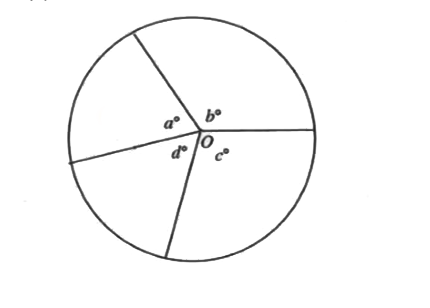The average of a, b, c, and d is p. If the average of a and c is q, what is the average of b and d in terms of p and q?
2p+q
2p−q
2q+q
2q−p
The correct Answer is:B
To solve the problem step by step, we will derive the average of b and d in terms of p and q.
Step 1: Understand the definition of average
The average of a set of numbers is defined as the sum of the numbers divided by the count of the numbers.
Step 2: Set up the equation for the average of a,b,c, and d
Given that the average of a,b,c, and d is p, we can write:
a+b+c+d4=p
Multiplying both sides by 4 gives:
a+b+c+d=4p(1)
Step 3: Set up the equation for the average of a and c
We are also given that the average of a and c is q. Thus, we can write:
a+c2=q
Multiplying both sides by 2 gives:
a+c=2q(2)
Step 4: Find the sum of b and d
To find the average of b and d, we first need to find b+d. We can use equations (1) and (2):
From equation (1):
a+b+c+d=4p
Substituting equation (2) into this:
(2q)+b+d=4p
Now, rearranging gives:
b+d=4p−2q(3)
Step 5: Calculate the average of b and d
The average of b and d is given by:
Average of b and d=b+d2
Substituting equation (3) into this:
Average of b and d=4p−2q2
Simplifying this gives:
Average of b and d=2p−q
Final Answer
Thus, the average of b and d in terms of p and q is:
2p−q
The average of a set of numbers is defined as the sum of the numbers divided by the count of the numbers.
Given that the average of a,b,c, and d is p, we can write:
a+b+c+d4=p
Multiplying both sides by 4 gives:
a+b+c+d=4p(1)
We are also given that the average of a and c is q. Thus, we can write:
a+c2=q
Multiplying both sides by 2 gives:
a+c=2q(2)
To find the average of b and d, we first need to find b+d. We can use equations (1) and (2):
From equation (1):
a+b+c+d=4p
Substituting equation (2) into this:
(2q)+b+d=4p
Now, rearranging gives:
b+d=4p−2q(3)
The average of b and d is given by:
Average of b and d=b+d2
Substituting equation (3) into this:
Average of b and d=4p−2q2
Simplifying this gives:
Average of b and d=2p−q
Thus, the average of b and d in terms of p and q is:
2p−q
Topper's Solved these Questions
- PROBLEM SOLVING AND DATA ANALYSISBook:ENGLISH SATChapter:PROBLEM SOLVING AND DATA ANALYSISExercise:Grib-In
Explore 40 Videos
- PROBLEM SOLVING AND DATA ANALYSISBook:ENGLISH SATChapter:PROBLEM SOLVING AND DATA ANALYSISExercise:Grib-In
Explore 40 Videos
- PROBLEM SOLVING AND DATA ANALYSISBook:ENGLISH SATChapter:PROBLEM SOLVING AND DATA ANALYSISExercise:EXERICSE
Explore 80 Videos
- PROBLEMS IN CONTEXT Book:ENGLISH SATChapter:PROBLEMS IN CONTEXT Exercise:PRACTICE TEST
Explore 10 Videos
Similar Questions
Let a, b and c be numbers with a<b<c such that the average of a and b is 2, average of b and c is 4, and the average of a and c is 3. What is the average of a, b and c?
View SolutionIf the average of a, b, c and d is the average of b and c, then which one of the following is necessarily true?
View Solution
Knowledge Check
The average of a, b, c, d, and e is 28. If the average of a, c, and e is 24, what is the average of b and d?
A31B32C33D34Suppose that the average (arithmetic mean) of a, b and c is h, the average of b, c, and d is j, and the average of d and e is k.
What is the average of a and e?Ah−j+kB3h+3j−2k2C3h−3j+2k2D3h−3j+2k5If the average (arithmetic mean) of k and k+7 is b and if the average of k and k−11 is c, what is the sum of b and c?
A2k−2B2k−1C2kD2k+12
In Q. No. 1, if PB=10cm , what is the perimeter of PCD ?
View SolutionLet a,b,c,d be positive real numbers with a<b<c<d. Given that a,b,c,d are the first four terms of an AP and a,b,d are in GP. The value of adbc is pq, where p and q are prime numbers, then the value of q is _____
View SolutionThe average (arithmetic mean) of a, b, c, and d is 3 times the median. If 0<a<b<c<d, what is a in terms of b, c, and d?
View SolutionIf a,b,c,d are distinct numbers such that : a+C=2d and b+d=2c , which of the following statements must be ture ?
I. a cannot be the average of a,b,c,d.
II b can be the average of a,b,c,d .
III d can be the average of a,b,c,d.
View SolutionIn the figure, O is the center of the circle. What is average of the numbers a, b, c and d?

View Solution

